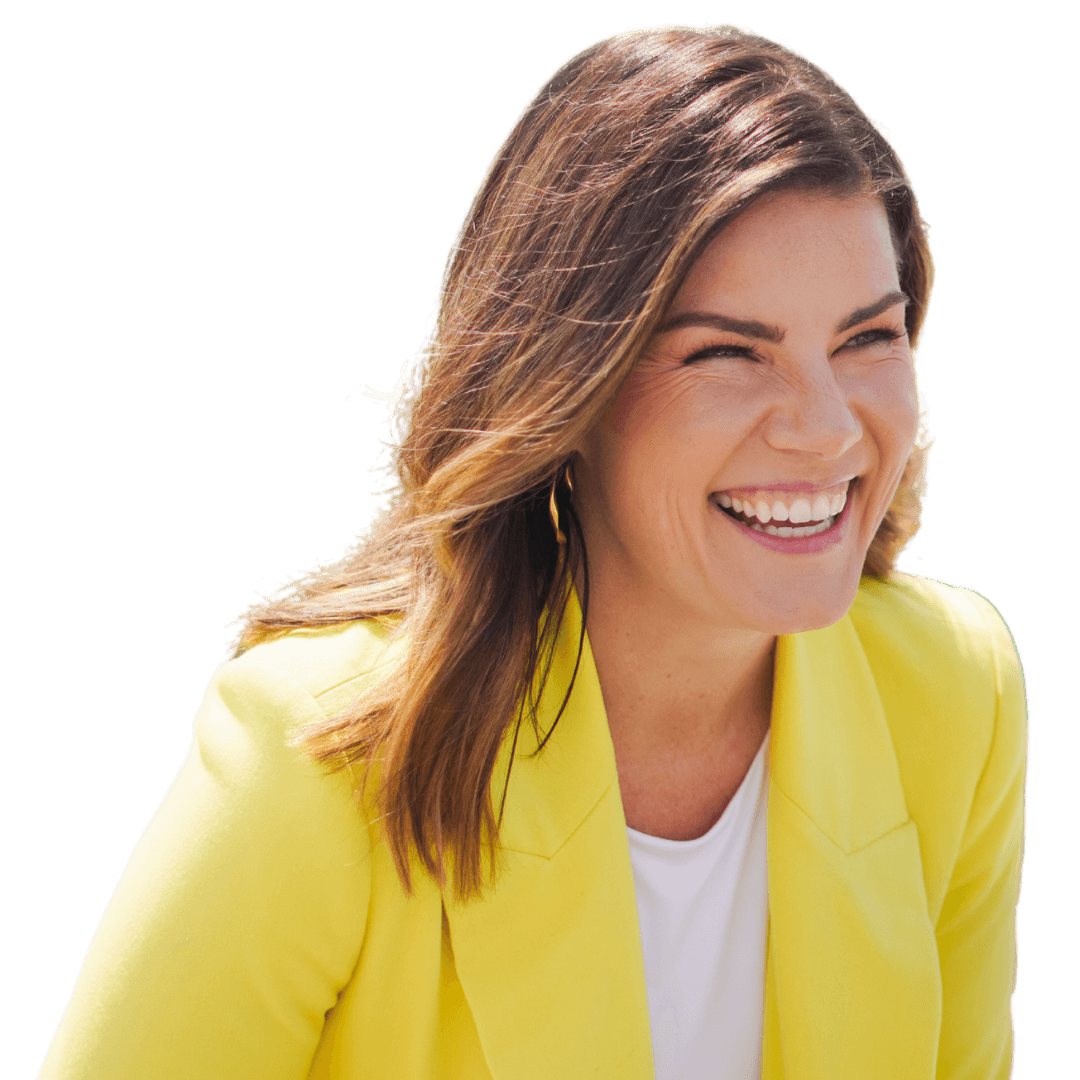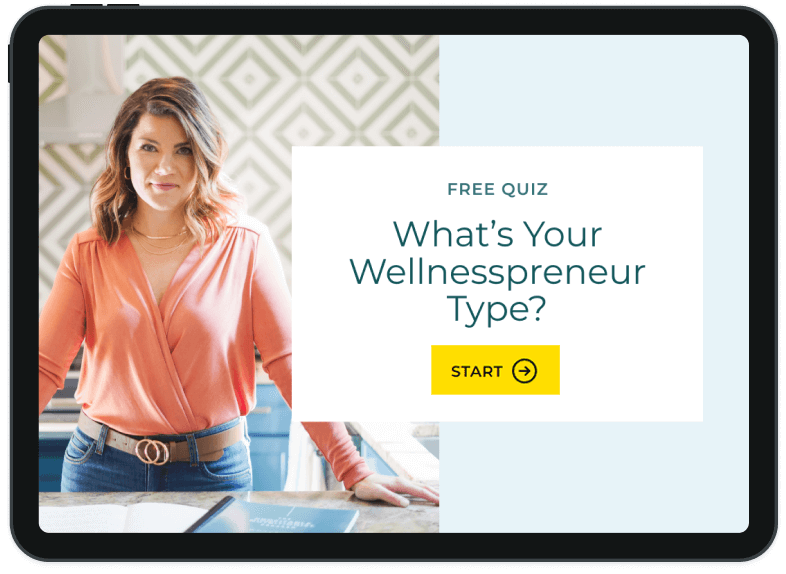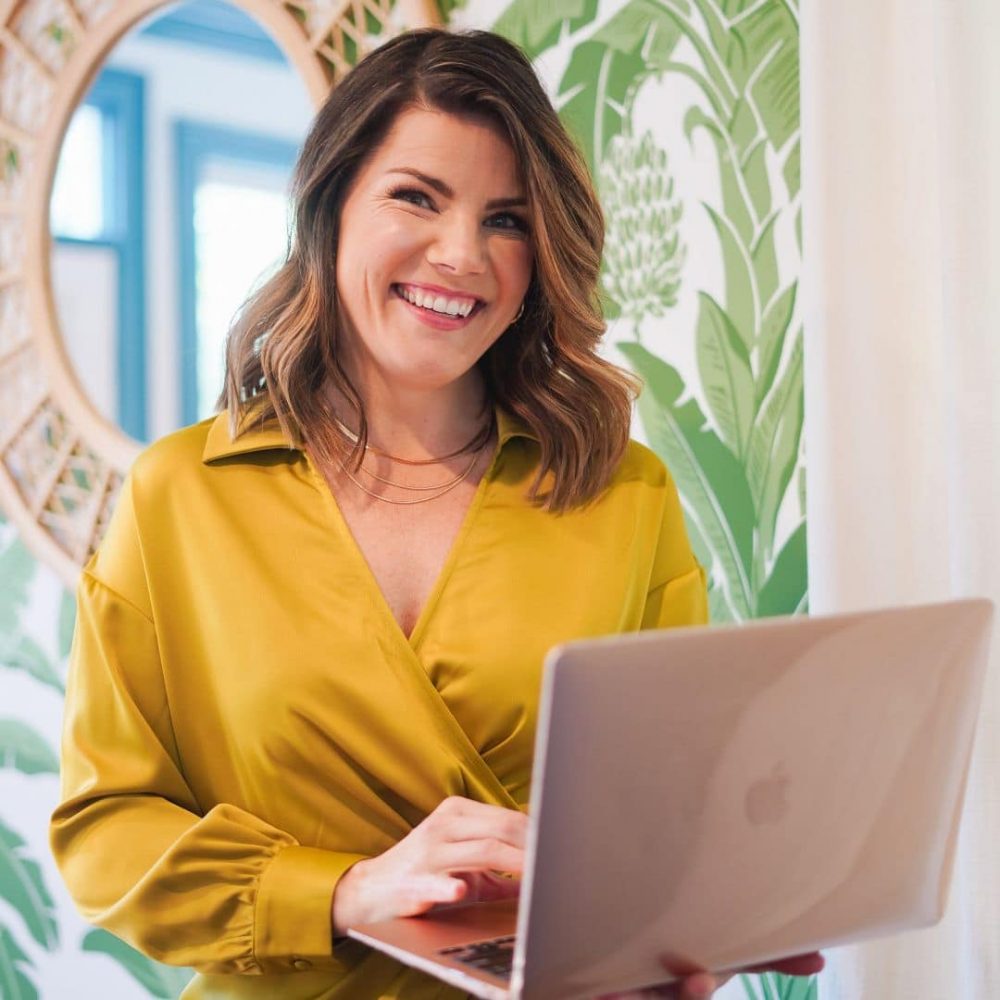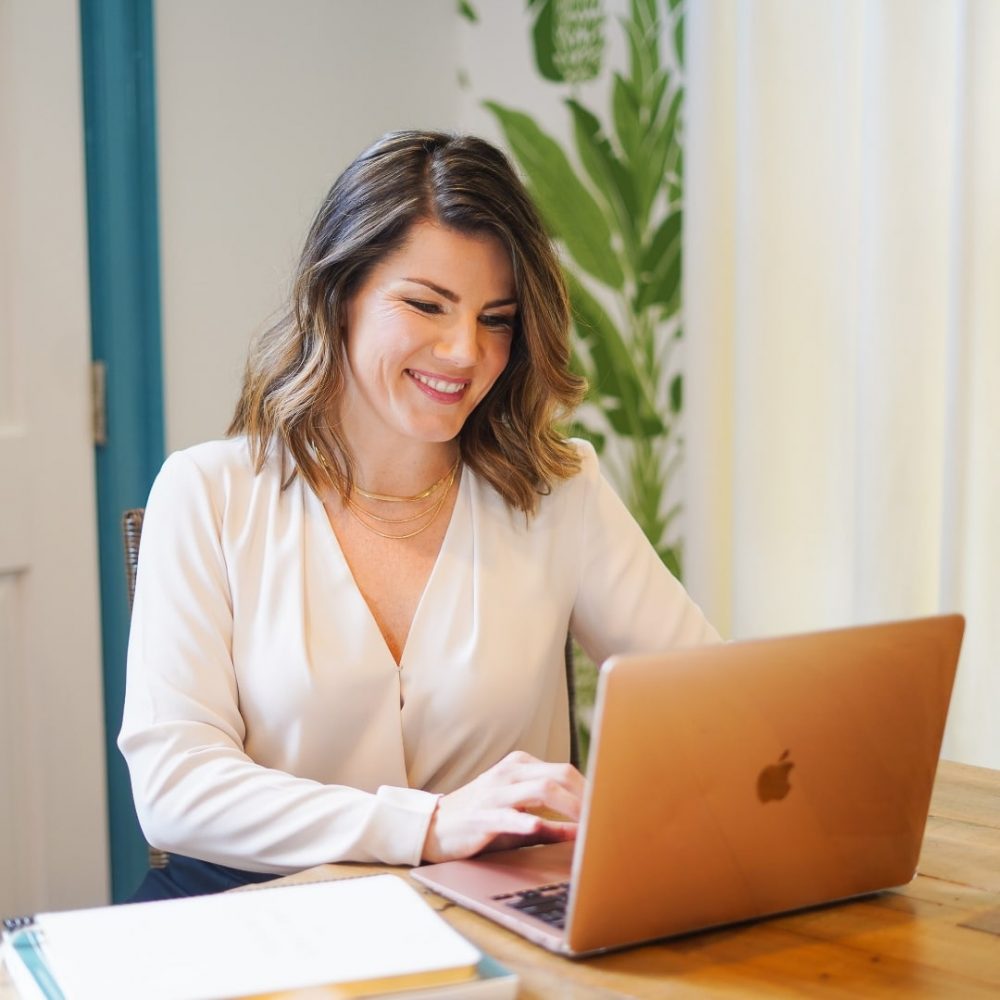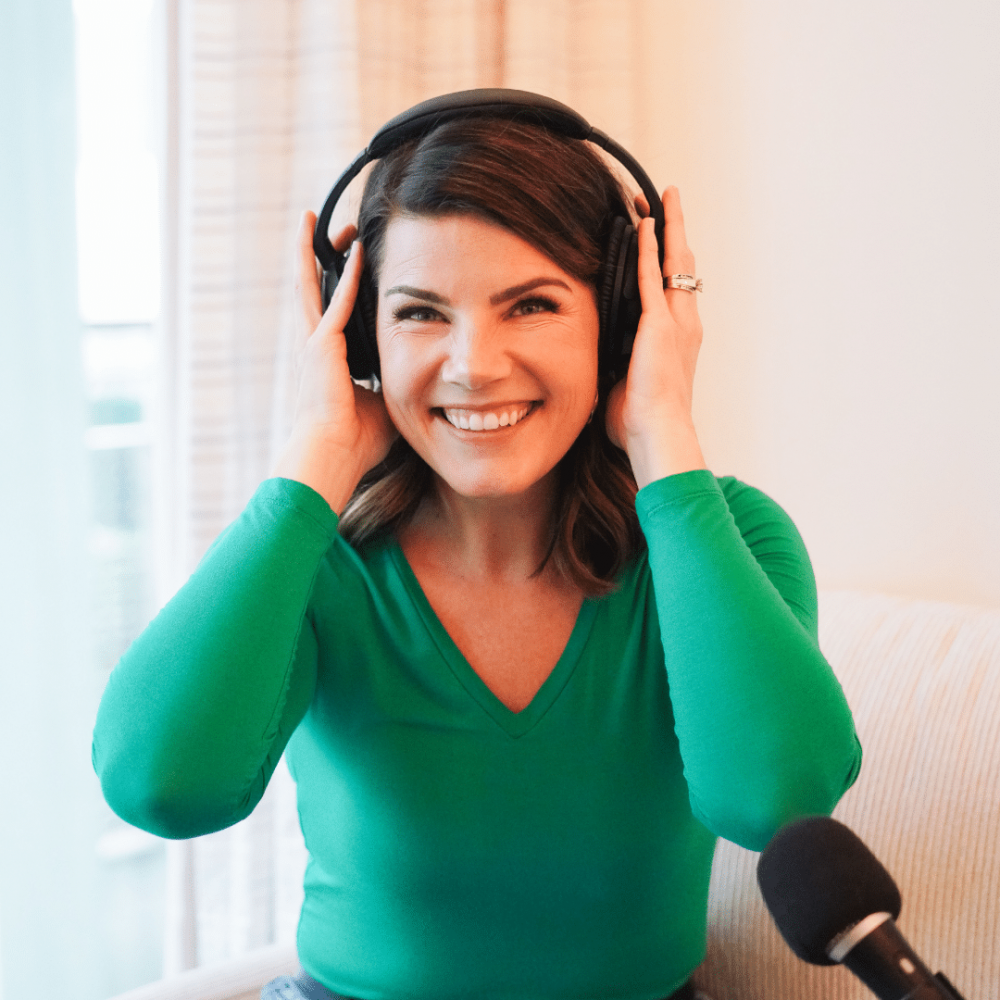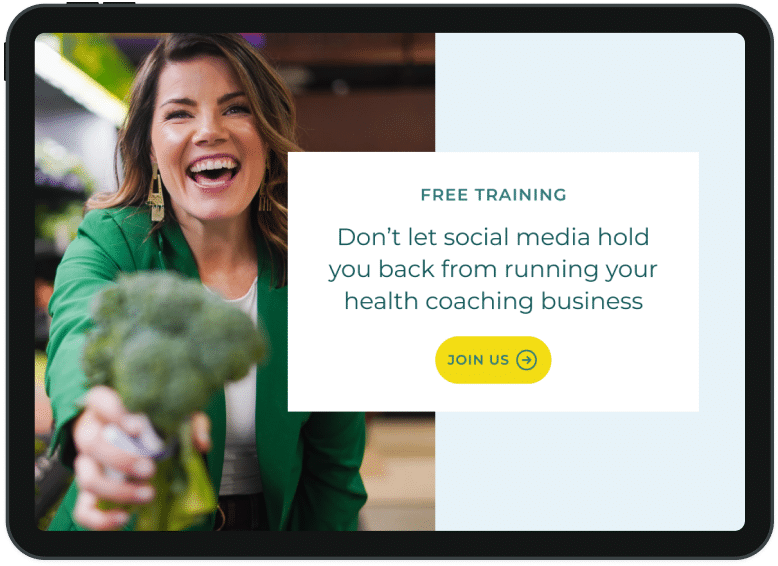Andrea Nordling 0:00
Now this is a fun one debt, business debt in particular, let’s talk about it. What are the different kinds of debt? How do you differentiate between them? Should you go into debt to grow your business? And are all of these questions bringing up a little Dave Ramsey PTSD when I asked them, because for me it just a few short years ago, it would have been so we’re talking about all of this today, my friend, we are tackling it head on. And you’re going to want to save this episode in your podcast app and listen to it multiple times, probably to really pull out all of the gems. If, for example, having money conversations with your spouse or with your clients is a sticky subject for you. Seriously, say this episode revisited. Often. As you’re going to be pulling back the layers on your limiting money beliefs, it’ll be helpful to re listen and get more nuggets each time. And if you are listening to this episode in real time, as it’s released on August 2 2022, hello applications are open for the streamline and scale mastermind. Today’s episode topic about money and investing and specifically debt is a focus topic very, very conscious decision to have this episode coming out today. Because we spend considerable time in the mastermind addressing money, thoughts and money stories together, all different flavors of it, I might add from charging to clients and pricing and investing and saving and managing money and your business. All of the things we talked about considerable time is spent talking about them in the mastermind. And the reason for that, as you’re going to find out as we discuss this topic at length together is because you are going to very, very quickly find out on today’s episode your opinions on debt and money management in your business and your personal life and how they impact very directly your effectiveness in selling to your clients. So of course, this is something we have to talk about quite a bit in the mastermind. In fact, we spend quite a bit of energy clearing up limiting money beliefs and coaching on money in general in the mastermind as we move through the four step process that the participants get to go through as part of that experience. Now to get all of the details about the mastermind, including the live in person, three day kickoff event in October, and to submit your application if you haven’t done so already, pause this episode stop right now, you gotta go quickly to grab one of the few remaining spots, it’s very limited spots available. And you do that at Build a Profitable practice.com/mastermind. The Mastermind container is a six month intensive, I think I already mentioned that, but I’m gonna give you the short course here. The mastermind is six months, it is one on one coaching from me and small group collaboration with other very highly successful health and wellness business owners that are at or above your current income level. So in a group like this, you can truly mastermind and learn from one another. There are not beginner questions being asked here. This is not foundational, this is very advanced strategy and growth tactics that we were talking about in the mastermind, I just have to also mention this is a very small group of only 12 people. So if you have ever wished that I offered one on one coaching and you could be coached by me one on one, this is as close as it gets my friend, so you need to apply for the mastermind, the mastermind is actually a great segue to this topic of debt. So let me just put a little pin in it. Today, mastermind applications are open. If you’re listening in real time, push pause and go apply. That’s your intention at Build a Profitable practice.com/mastermind. If you’re listening in the future, you will also be able to get all the details on what’s included in the mastermind and what it’s all about on that page. Okay, but not here. But let’s do our segue with this great topic of debt that we’re going to unpack today. Because you may or may not know this about the mastermind, it’s a very serious investment of $10,000 for the mastermind for six months, it is expensive. And that is by design. It is not by accident. Because making a $10,000 investment in your business is going to like I said earlier, very quickly bring up all of your thoughts about money, all of your thoughts about your ability to manage it properly, and invest it and make it work for you. And in my opinion, many of those beliefs stem from the way that money was talked about in your household growing up. These are the unconscious things that we pick up money beliefs that we pick up from our childhood and onward. And then those beliefs have been proved true for you as it is for all of us in your adult life by your personal financial experience is through this little thing called confirmation bias. You’re probably familiar with the term. But confirmation bias is a fancy name for the very, very normal human brain pattern of looking for evidence to support whatever it is that we already believe. So whatever we already think is true. Our brain gets to work to prove it to us. That’s confirmation bias. A glass half empty person will consistently find evidence for why the glass is half empty. Confirmation bias. We all know this is true. Their brain will be systematically honing in on all of the reasons that the world is against them that people saw fact that life is hard, and that they’re at a disadvantage, confirmation bias. And that’s also why I lose my mind to thinking about all of the political issues that are hot buttons, right now that we all know about that are forced on our kids in school and through all the mainstream media all of the time, because a lot of those messages are telling people how disadvantaged they are. And it’s the confirmation bias situation. Okay, that’s a podcast episode, that will definitely get me canceled. So I am going to save my full thoughts on that topic. For in person, if I get to meet you in person, we can talk all about that. The point is that confirmation bias is strong, and it is at work behind the scenes in our life all of the time. Okay, we know the converse of the glass half empty person Is the glass half full person that will consistently find evidence for why the glass is half full, it will see possibility they will see the good in others, they will find the silver lining and crappy circumstances in their lives, they will seek out solutions instead of fixating only on the problems, confirmation bias. And confirmation bias plays a huge role in how we think about money, and in our entire relationship to it. As an example, if you have been socialized or had a lot of evidence in your life to believe that money comes to you freely and easily, you will continually find evidence that that’s true. And it will be for you. Because your brain will only be looking for reasons why money comes easily and consistently. And that will be true for you. If you have been socialized to believe that money is hard to come by, there’s only a little bit of it, and it’s very hard to get it, you will continually find evidence that that’s true. And then it will be true for you. Neither one of these is actually true or false, we need to be very clear on that. Neither one. But confirmation bias shades our perception. And then we create truth for ourselves about what we believe is true for us. And we know that this is true. Because what you believe to be a lot of money is going to be a miniscule amount to someone else. And what you believe to be an acceptable amount to charge for your services is going to be way higher than what someone else feels is acceptable. It’s also going to be way lower than what someone else feels it’s worth. See what I’m saying someone else, I think it’s a pittance someone else thinks it’s just outrageous. None of these are actually true. Numbers are totally neutral. It’s what we make them mean, and what our confirmation bias is proving true for us around numbers. Now remember, numbers are totally neutral. That’s why we don’t hide from them. We talked about this extensively on Episode 41, a few episodes ago. So go back and re listen to that after this one. If this is ringing true for you, but numbers are neutral, we just give them a lot of meaning based on our confirmation bias. And I knew that I had to do this episode when I had a question come in from one of my students who asked if it was possible to grow a business without taking on debt. And here is what I sent to her and we’re gonna talk about it. In regards to the debt. Yes, I think you can grow your business without going into money debt, but the time investment is much higher. I also think you can grow your business by investing in it monetarily and save yourself time. Either one is an investment, whether it’s in time or money. But most of all, I think you can do either of those things without attaching any judgment or meaning to the decisions, as in taking on debt for your business, whether with time or money is not right or wrong. What if it was totally neutral either way? And how are your current beliefs about debt showing up in your offers for your clients, but you can see how they are. So that was my response to her. And I want to elaborate on that a little bit. Because I think that this is something that our grandparents and their grandparents before them knew. But we forget sometimes. So good reminder, you’ve probably heard this from some old timers in your life. You can have cheap, you can have fast, or you can have quality. You can have two of those three things, but not all three. Okay, so I’m gonna say this again, and I’m probably butchering it. But this is how I understand this. You can have cheap, faster quality, pick two out of the three, you can’t have all three. So think about that, in terms of how you are quantifying the debt that you put yourself in, in your business or in your life. Are you going into serious debt with your time or with quality to avoid spending actual money? I see people do this a lot, but it’s still debt.
Andrea Nordling 9:09
Brain explodes. Think about this. Are you going into serious debt with your time or with your quality to avoid spending actual money? The coaching I gave to my student around this question was to ask about the underlying belief that it would be either better to grow a business without taking on debt or worse to take on debt because there was clearly a belief that one was better, and we were trying to avoid the worst situation. But is that even true? Interesting question, right? When you realize that debt is just totally neutral, and in business, it can actually be a tool to use instead of judging it as good or bad. Then the opportunities open up. They open up for you and for your clients. As you can probably now see which direction I’m going here. If you’re fixated on avoiding debt at all costs for yourself, you’re going to be projecting that on some level you’re gonna be projecting that belief onto your clients and judging their ability or their motivations to pay you with a credit card or by leveraging debt, you’re going to be putting that on them. That one is right or wrong and that you don’t want them to make the wrong decision. So if you’re going to make their money, your business that is never going to turn out well for either of you. So why do we have such strong judgments about debt in the first place? I have to ask myself this question. And I blame Dave Ramsey, I gotta say it I blame old Dave who I have a love hate relationship with it. Let me tell you about it. First of all, if you don’t know who Dave Ramsey is, I thought that every single person on the planet know who Dave Ramsey was. But I just had a friend I was talking about Dave Ramsey worth recently and she was like, I don’t know who that is. Is that that Chef guy? And then I died laughing. I said, No. Okay, so note to self, not everybody knows Dave Ramsey, you may find it really curious to know that she also has fantastic thoughts about money, because she doesn’t know.
Andrea Nordling 10:53
But I digress. Okay, Dave Ramsey is a personal finance guru who talks a lot about debt and getting out of debt, and avoiding debt. Okay, his concepts are fantastic. I know he has helped so many people. And at certain points of my life, he has been very, very helpful to me as well. He focuses on baby steps to get out of debt, pay off all of it, including your mortgage, in most scenarios, and then start investing your money. And his niches personal finance. So the first distinction I need to make, and I need to say I love me some Dave, but also, I have some issues with Dave, and here’s what it comes down to our business, finances. And our personal finances are different, because investments in your business actually make you money. Okay, investments in your personal consumer goods, buying a better car, or buying a new iPhone is not going to make you money, probably. I’m sure there are caveats. But for the most part, that’s not going to make you money. And Dave talks a lot about that. But we have to understand that our business investments are not the same. And going into debt and your business and making an investment is going to actually make you money. So there are two different scenarios here. We cannot lump them together and assume that it’s right or wrong, to take on debt or not take on debt in our business, based on how we feel we want to treat our personal finances, not the same thing. Okay, so distinction, right, their personal finances are different than business finances, because you actually make money from the investments in your business, if you’re making sound, good investments. Now, also, Dave Ramsey is appealing to the masses. And if you are familiar with old Dave, you notice he is talking to people that do not have a business. So he is talking about things like getting an extra pizza delivery route to pay off your debt faster, and to cut the premiums on your insurance to get a few 100 bucks more a year to throw at your debt and pay off your debt. These are some of the things that he is talking about, which are helpful, don’t get me wrong. But they are for the masses of people that don’t have a business at their disposal to generate huge influxes of cash immediately. You do have that. So again, the way that we treat our personal finances and the way that we look at financial information from even very credible people that can be very helpful at certain seasons of our life, may not take into account the fact that you do have a business, you do have the ability tomorrow, or even depending on what time you’re listening to this today to get 1000s of dollars from strangers that want your help. That is a much different scenario than somebody that needs to take on an extra pizza delivery route. Maybe you want to take on an extra pizza delivery route, and also make 1000s of dollars from clients. today. I have no judgment either way. But I’m saying that some of those suggestions about how to manage our money, our personal finances are made with the supposition that you don’t have access to large income streams, okay, but you do if you have a business you listen to this podcast you do, even if you’ve never had a client before, that could change today. So you do have this. Even more curiously, we know that this is really a thing when even the federal government agrees that business finances are different than consumer debt, which is why you get to write off your business investments. So get your ducks in a row with all of your investments in your business and your personal finances separated from your business finances. So you can always be writing off your investments. We talked about that in episode 41. Just a little reminder there. Now, another thing that I think plays into the thoughts about debt and Dave Ramsey, kind of like in a backwards way probably is part of this discussion as well. But it’s the thought that that investing in college is different than investing in your business. And why do we think this way? Now truth be told, this is another one of those conversations that will quickly get me cancelled, I’m sure, but in real life, we can talk about my thoughts on investing in college. However it is, I think we could mostly agree it is widely accepted to invest 1000s and 1000s, if not hundreds of 1000s of dollars in secondary education, post secondary education secondary post secondary education
Unknown Speaker 15:00
Big shout out to the public Post Secondary College system I
Andrea Nordling 15:04
want to right there, it’s widely accepted that we make these huge investments in college, because the thought process is, you will then be able to get a better job that is going to pay back that investment. It’s like an investing in the business of your life. Right? This is what we think we could find so much evidence that that is not true for many industries, and many people, again, separate conversation about guests to be had, that I’m never going to make. But it’s the confirmation bias behind it that I think is interesting, and why I wanted to talk about it on this episode. Because for so many people, we think that’s a safe investment. If somebody else set up the system to go to college and to learn the things, then that must be a safe investment, for the most part, you’ll get something out of it, that’s going to pay you back. So you’ll be able to pay back those loans or pay back the investment, whether it was a loan or not. And someone somewhere figured out how to pencil that out. And so they must have figured it out. Isn’t that kind of what’s behind the whole, like the whole thought process there? I think it is. And I don’t think it’s true. Because I think that betting on yourself, to figure out how to make your investments back in your business is going to be a much more lucrative and fun way to bank you’re like to hedge your bets. That’s what I want to say to like, I would hedge your bets on yourself instead of on somebody somewhere at a college figuring out how to make the money back. And you’re probably not even at college age right now. And it’s not a consideration for you. But I think that most of us have been for a long time taught that that is a safe bet. And I think it’s interesting, what if investing in your business was actually the safer bet? I choose to think that confirmation bias, right. All right, so let’s move on from student loans or paying from college. Not that it surprised you for one single second that I have very strong opinions on such but I think we’ll just slide into more thoughts about money and thoughts about debt and a little bit more of the nuanced conversation on confirmation bias and how this works in how we see things. Okay, so I had two fantastic examples from my students in the profitable nutritionist program that had posted in our private community that is not on Facebook, by the way, in our private community they had posted to, these are separate posts, but I looked at them and I was like, Oh my gosh, we have to talk about this on the podcast. So I compiled them in here to read to you because I think that what you’ll see is that by doing the exercises in the program, and that’s what these posts were in response to it, there’s a workbook that you get in the program, we work through some of these exercises, and they had had some things come up that they were posting their awareness on. So I think from when you see what they uncovered in these exercises, you’re going to see how the awareness of the confirmation biases is going to immediately show up for both of them on their bottom line in their business and how they sell to their clients. We’ll talk more about it, but I think it’s gonna be pretty evident. So here’s the first one. She said one thing that came up with the idea that if she decides it’s worth the investment, she will either come up with the money or use her credit card. I know that this particular client has been at this journey for years and has probably spent a ton of money on supplements, doctor’s visits, Advanced Functional lab tests, and so on. She told me once that she keeps putting all this on her credit card hoping to get better, but she clearly isn’t there yet. And I know that despite all the advanced work these doctors are doing, they are not helping her cover the basics like building the habit of avoiding refined foods. So I feel a little guilty if she puts my coaching program on her credit card. But do these doctors feel any guilt about putting these supplement protocols and lab tests on her credit card? Absolutely not. And if this $1,200 investment is what she needed to get her habits and systems and mindset in the right place, to not only overcome her physical health issues, but to transform her life overall in multiple ways. Why would I feel any guilt about her using a credit card to pay for it? I think I still need to work on the belief that my solution can do all that. And I also need to work on some underlying guilt I have about things like personal debt. I’ve always avoided credit card debt for myself like the plague. And at the same time I’ve had a sibling file bankruptcy after running up her credit cards excessively. So some of these emotions, like guilt around clients, using their credit cards, if they can’t afford to pay upfront may run deep for me. Oh my goodness, let’s take a minute. So insightful, right. And she is uncovering this in real time as she’s posting this that she can see oh my goodness for this client. I am trying to make the decision for her on if she should or should not be taking on debt to invest with me. Never going to be a good idea to make anyone else’s money decisions get out of their pockets. Never going to be a good idea. Let’s neutralize the thoughts about how other people spend their money. As much as possible. Believe me, there’s no use in trying to decide how people should and should not spend their money. You’ll be disappointed every single time. And for most of us we can’t even get our head on straight about how we spend our own money. So back off from that, but I love that she shared this I love that she had the awareness as she was going through the exercises in the program that she was seeing some of this for herself, because now she has that insight on how her sales conversations are going and could be improved in the future. When she runs into situations like this, where people are honest with her about going into debt or not going into debt, very, very insightful, she’s going to make some really informed decisions from knowing that this is a deep belief she has about her personal finances, and that she’s projecting them on to potential clients. So insightful, right? Now, here’s another post from another student in the program on the exact same topic, she said this, I signed up for this program without having money saved up to do it, I just knew I had to be in this program. And I didn’t care if I didn’t have the money, it’s been the best thing I’ve ever put on a credit card. This is the best investment I’ve ever made to myself, I’m not worried about it, I’ll pay my card off. Eventually, this investment is so transformational. This has helped me see that my own program can do this for someone else, they may not have the money or the time. But if they see its value, it does not matter where they are financially, or how much time they have. I’m the client who really didn’t have the money, but I had a credit card. And despite what some financial advisors would say that credit card gave me an opportunity to grow in ways that I would have never been able to do this quickly on my own. I’m actually thankful for the credit card and the debt because I know that it’s going to pay itself off soon, our best clients will find a way to make it happen. And they will show up 120% Because they see its value. This is also part of their growth, let them find the way it’s not our job to figure it out. This is part of the transformation, faith and believing and trusting that this is the best investment that I can make on myself, and that these are my best clients. These are my people. This is who I want to work with, Oh, my goodness, can you just feel the confirmation bias at work there, she sees the possibility she is seeing it so good. And both of these students are confirming their own thoughts, right. So they’re looking at their clients, and then confirming their own thoughts with full awareness. Neither one is better or worse, it’s just a matter of looking at Oh, my goodness, this is how I see this situation because of my own confirmation bias. And therefore I’m going to be attracting or repelling these types of clients because of what I am thinking about money and about investing. That’s why this work is so crucial. Both of these students have had huge breakthroughs in their awareness of their own preconceived thoughts about money and debt and how they will show up in their business, and how they position their offer and sell. Or in some cases don’t sell to their clients. That’s why it’s so great. But without the awareness of the fact that you even have those judgments in the first place about debt and investing. And what is a good and a bad way to spend money, and what is a good and a bad way to spend time. And if spending a lot of time so that you save money is better, or spending a lot of money. So you save time is better? Do you see like, if you have any of those thoughts, you have to be aware of them before you can change them. And maybe some of them you keep and maybe some of them you don’t be have to have the awareness in the first place. But these aren’t actual truths. These are just money stories that you’ve held for a long time. And then you have created as human brains do the confirmation bias behind it to make it seem like a fact. It’s just a story. But we all do this. We all have stories, and then our brains get to work to confirm that it is actually a truth and not a story. So my suggestion for you always is to zoom out and question what your beliefs are about debt, for your business and for your personal life? Because they intersect quite a bit. Your thoughts about them? Certainly do. And then if you want to keep believing those things? Are they serving you? Are those thoughts helping you? Are they hindering you? Are they useful? Are they not useful? Get really curious about what your thoughts are about debt. I have done this at various stages of growth in my business. For the last, I would say for the last five years, I have really been aware at a new level of my thoughts about money. And my thoughts about investments and my thoughts about debt. And I have seen like an onion as I peel back the layers of awareness for myself. I’ve seen so much growth and so much transformation. And again, just getting so much more aware of these underlying stories that felt like truths before and then of questioning do I really want to keep thinking that? I don’t think I do. Or maybe I love that. I think that that’s really useful for me, I’m going to double down on that belief. But you have to be aware of it first as a choice because maybe some of them are serving you and serving your business and serving your future clients and maybe they aren’t. So the choice is yours on keeping those thoughts or not but the awareness that they are a choice is step one. And I have to wrap up here and say if you are applying for the mastermind, get ready because we will be tackling this subject head on in person, one on one during the three day live event in October, all while eating incredible food and staying at a luxury venue and eliminating all distractions for three days of focus and high level strategic decision making. It’s the best. It is truly the best and yes it’s expensive. Yes, it is an expense Smith that will make you hundreds of 1000s of dollars in return over the next few years and likely it’s an investment that will make you millions over the course of your career so I’m gonna let you sit on that
Andrea Nordling 25:13
have a wonderful wonderful week my friend
